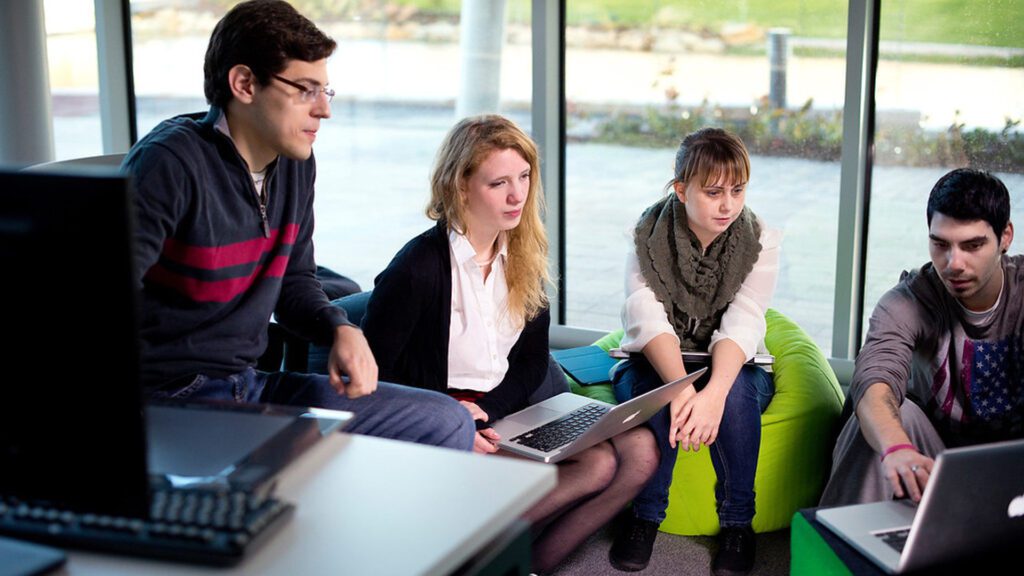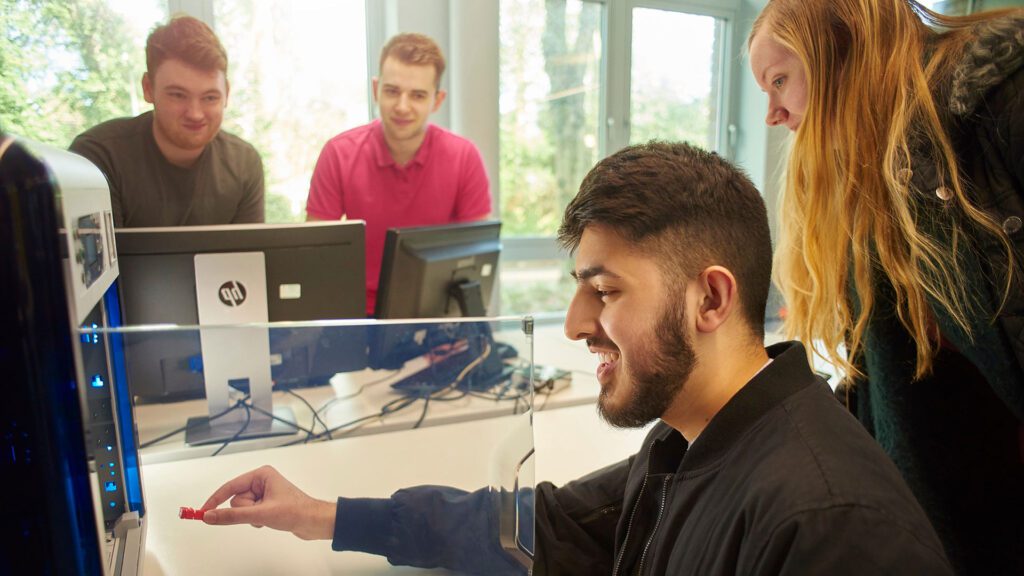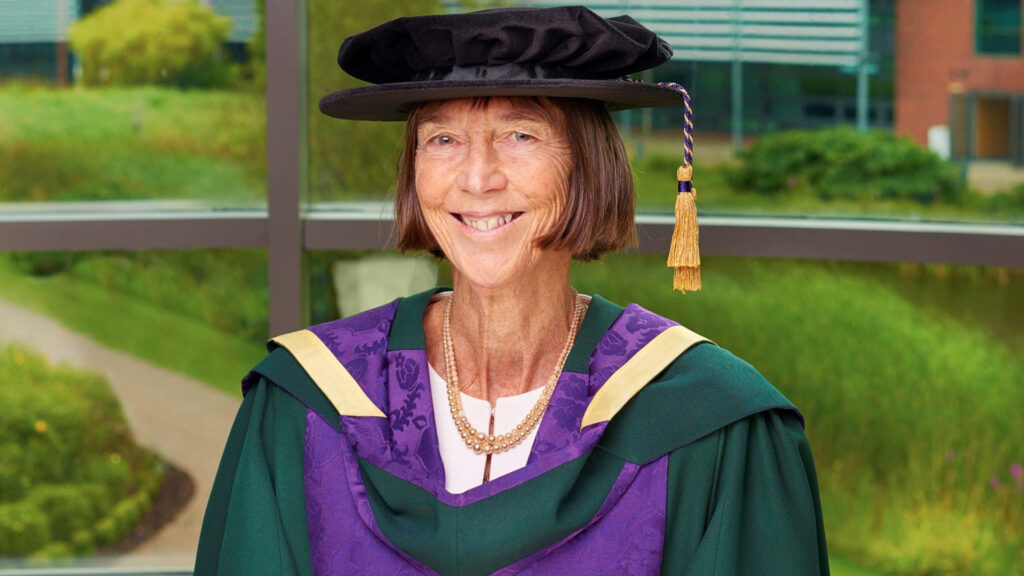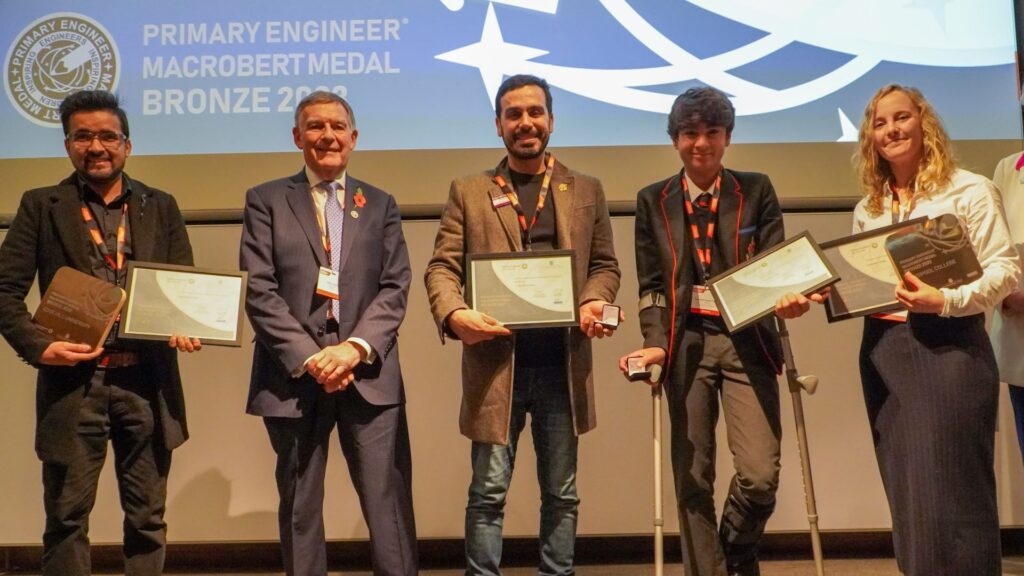Electrical Engineering MEng (Hons)
UCAS code: H621
Challenge the status quo. Mould the future. Our integrated Masters degree will prepare you for an exciting career. Whether you end up working on transport systems or power distribution networks, you’ll exploit your technical skills to make a positive difference.
Overview
| Course length: | 4 years full-time |
|---|---|
| Start dates: | September 2025 |
| Location: | Edge Hill University |
| Example offers: | BBC-ABB (A Level) or DMM-DDM (BTEC) View full entry criteria |
| Subject(s): | Engineering |
| Faculty: | Arts and Sciences |
| Department: | Engineering |
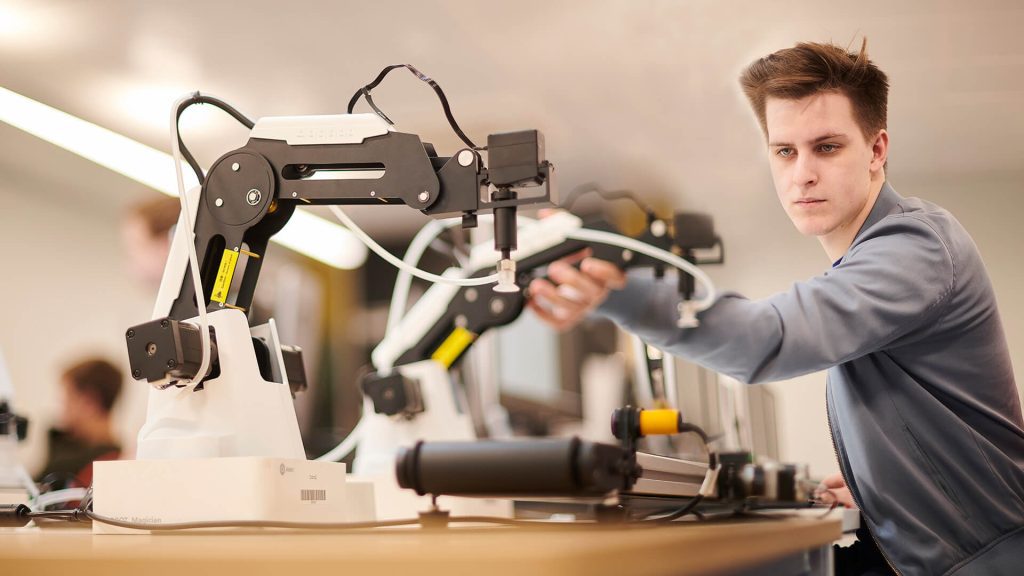
Design. Develop. Evaluate. Electrical engineers are in the business of creatively solving design problems. On this degree, we’ll prepare you for that future. If you study for your electrical engineering degree with us, we promise to support you each step of the way.
Our integrated Masters degree will challenge you. It will also develop your knowledge of electrical engineering. You’ll stand out in the graduate job market. The MEng Electrical Engineering degree is designed to prepare you for future senior and specialist roles within the industry.
Our dedicated teaching staff will help sharpen your knowledge. You’ll develop your skills in areas including programming and applied mathematics, control theory, modelling and project management.
Your unique skill set will enable you to explore roles in different parts of the world. You’ll also gain the satisfaction of seeing the real impact of your work, with opportunities like collaborative engineering projects to build your experience and team working skills throughout the course.
Course features
-
International students can apply
-
Sandwich year option available
-
Studying abroad option available
What you'll study
Electrical and electronic engineering. Digital circuitry and logic. Computation and programming. These are some of the key modules you’ll study in your first year. Including mathematics for engineering, they’ll give you a solid foundation for the rest of your degree.
You’ll investigate power electronics, electrical machines, and control systems in your second year. The curriculum will also provide you with opportunities to specialise. You’ll take a deeper dive into mathematics for engineering. And through a simulated work environment, you’ll deliver real projects. At the end of the year, you’ll have the opportunity to take an optional 12-month industrial placement.
Regular project work will continue into your third year. It’ll help you broaden your experience into other related disciplines. You’ll also examine important themes such as power systems, Internet of Things security, and engineering management and enterprise. You’ll complete an in-depth multidisciplinary engineering group project, sharpening your teamworking skills.
Your final year will centre around an independent study project. You’ll demonstrate your project management skills in a research and development project, resulting in your own piece of software or hardware. It’ll help to set you apart in conversations with future employers. You’ll also develop a deeper understanding of natural sources of renewable energy, the use of smart grid technology, and ICT for the transmission and distribution of generated power.
How you'll study
Teaching methods are designed in consultation with leading employers in the region. Many classes are based in engineering and computing laboratories, focusing on student activity as a means of learning. We introduce theoretical concepts by building on concrete practical activity.
Classes are highly interactive, with practical application of concepts a key factor, as well as cases drawn from real-life. Workshops, seminars, group tutorials and practical exercises provide opportunities for you to work with your peers and develop the essential people skills to complement your technical ability.
You will be required to attend up to four days a week.
How you'll be assessed
You will be assessed through a combination of practical exercises, reports, essays, presentations and examinations. We want you to develop the ability to work effectively both independently and as part of a team, therefore assessment includes both of these forms, though the emphasis is strongly on individual work.
Who will be teaching you
You will be taught by staff who are passionate about student learning and development, as well as benefitting from guest lectures delivered by industry experts. The programme team are specialists in engineering and computing and are active researchers. Their research feeds directly into the teaching of the programme, ensuring that you will learn about the latest developments in subjects while gaining the skills and knowledge required to meet industrial needs.
Academic staff are also regular contributors to conferences and journals and regularly engage with the wider business and academic environment in disseminating knowledge and delivering impact.
Entry criteria
Entry requirements
Typical offer 112-128 UCAS Tariff points. This must include A Level Mathematics at Grade C or above or equivalent. GCSE English Language at Grade C or Grade 4 or above, or equivalent, is also required.
For students studying BTEC a BTEC Extended Diploma in Engineering is preferred. Typical offers will be DMM, with grade Merit or above in one of the following units:
- to solve engineering problems
- engineering mathematics
Example offers
| Qualification | Requirement |
|---|---|
| A Level | BBC-ABB. |
| BTEC Extended Diploma (or combination of BTEC QCF qualifications) | Distinction, Merit, Merit (DMM). |
| T Level | Overall grade of Merit. |
| International Baccalaureate (IB) | We are happy to accept IB qualifications which achieve the required number of UCAS Tariff points. |
| Access to Higher Education Diploma | 45 credits at Level 3, for example 15 credits at Distinction and 30 credits at Merit, 24 credits at Distinction and 21 credits at Merit, or 30 credits at Distinction and 15 credits at Merit. The required total can be attained from various credit combinations. |
Please note, the above examples may differ from actual offers made. A combination of A Level and BTEC awards may also be accepted.
If you have a minimum of two A Levels (or equivalent), there is no maximum number of qualifications that we will accept UCAS points from. This includes additional qualifications such as Extended Project Qualification (EPQ), AS Levels that haven't been continued to A Level, and General Studies AS or A Level awards.
English language requirements
International students require IELTS 6.0, with a score no lower than 5.5 in each individual component, or an equivalent English language qualification.
If your current level of English is half a band, one band, or one-and-a-half bands lower, either overall or in one or two elements, you may want to consider our Pre-Sessional English course.
How to apply
Apply full-time
Read our guide to applying through UCAS to find out more about the application process.
International
Please see our international student pages for further information about how to apply as a prospective international student.
Should you accept an offer of a place to study with us and formally enrol as a student, you will be subject to the provisions of the regulations, rules, codes, conditions and policies which apply to our students. These are available at www.edgehill.ac.uk/studentterms.
If you join a full time undergraduate degree at Edge Hill University, we will guarantee you the offer of a room in our halls of residence for the first year of your course.
Discover our accommodation
Facilities
The Department of Engineering benefits from the facilities provided by the state-of-the-art £13m Tech Hub. This purpose-built development offers highly contemporary suites of outstanding facilities for Engineering and Physics, as well as Computing, IT and Mathematics students. Our modern engineering teaching laboratories are equipped with a range of industry-standard, test and measurement equipment, and leading analytical software.
There are dedicated specialist laboratories for materials engineering and electronics circuits, in addition to an abundance of computer facilities. Other on-campus purpose built engineering laboratories are dedicated to electrical machines and power drives, thermodynamics and fluid mechanics.
Learning resources include oscilloscopes, signal generators, digital multimeters, thermodynamic temperature measurement, digital hydraulic bench equipment, a tensile tester machine, electronics training kits, single and 3-phase transformers, a 3-D printer, and robotic arm kits, plus MATLAB and SolidWorks software platforms.
Teaching and learning are supported by the web-based platform Blackboard Ultra Virtual learning Environment. The library is well-stocked with recommended print books and e-books and subscribes to high-impact technical e-Journals. The university subscribes to LinkedIn Learning, which provides free and unlimited access to thousands of high-quality online courses and video tutorials written by industry experts.
Assistive and accessible technologies include Read&Write text to speech software, Caption Ed to facilitate ease of note taking, and a mind mapping tool. The university provides specific workshops on academic skills for students who have a specific learning difficulty or disability.
Where you'll study
Tech Hub
Learning resources
Finance
Tuition fees
UK Full-Time
£9,535
a year
International
£17,000
a year
2025/2026 part-time fee information will be added when available.
EU/EEA and Swiss students who have settled or pre-settled status under the EU Settlement Scheme, as well as Irish nationals, may be eligible for the UK tuition fee rate.
Financial support
Subject to eligibility, UK students joining this course can apply for a Tuition Fee Loan from the Government to cover the full cost of tuition fees. UK students enrolling on the course may also be eligible to apply for additional funding to help with living costs.
Scholarships
We offer a range of scholarships, which celebrate the determination, commitment and achievement of our students. Many of our scholarships are awarded automatically. There are some however, where you will need to be involved in an application or nomination process. To find out more about our scholarships and check your eligibility, please visit our dedicated scholarships pages.
Money Matters
Please view the relevant Money Matters guide for comprehensive information about the financial support available to eligible UK students.
EU/EEA and Swiss students who have settled or pre-settled status under the EU Settlement Scheme may be eligible to apply for financial support. Irish nationals can ordinarily apply to Student Universal Support Ireland (SUSI). If you are an EU student who does not have settled or pre-settled status, or are an international student from a non-EU country, please see our international student finance pages.
Your future career
When you graduate as an electrical engineer, a thrilling career awaits. Your technical skills will be in-demand across the globe. From electric motors to power generation and distribution, you’ll bring in-depth knowledge and expertise to real-world problems.
You might work in areas including:
- electrical design
- project management
- renewable energy
- product design engineering
- systems analysis
- research and development
- telecommunications
Graduating from our MEng degree will also open the door for you to pursue further study and research, such as a PhD.
Alternatively, you might want to take your transferable skills to other industries such as teaching or an area of business. Whatever you decide, we’ll support you as you explore what’s right for you.
Once you’re in the working world continuous professional development is well supported by professional bodies such as the Institution of Engineering and Technology (IET). Through a mix of short courses, conferences, and workshops, you’ll keep abreast of industry developments. You’ll also sharpen your technical, communication, and interpersonal skills.
Course changes
Every effort has been made to ensure the accuracy of this information, however our courses are subject to ongoing review and development. Changing circumstances may necessitate alteration to, or the cancellation of, courses.
Changes may be necessary to comply with the requirements of professional bodies, revisions to subject benchmarks statements, to keep courses updated and contemporary, or as a result of student feedback. We reserve the right to make variations if we consider such action to be necessary or in the best interests of students.
